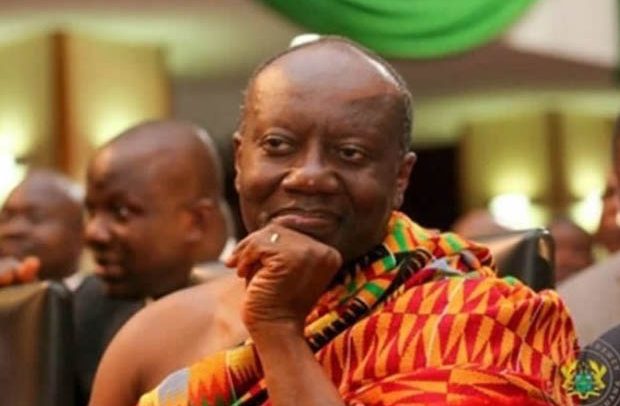Ken Ofori Atta
COMMERCIAL OIL production in Ghana is projected to increase to 500,000 barrels per day by 2024.
The Finance Ministry is said to have made the announcement to investors in Oslo, Norway on Wednesday, February 13, 2019.
Finance Minister Ken Ofori-Atta is leading a government of Ghana delegation to Norway, and Finance Ministry press release made available to DGN Online indicated that overall crude oil production from Ghana was expected to more than double over the next four years.
Aker Energy ASA, a Norwegian firm, has already confirmed a significant offshore resource base in Ghana and has committed to scale up new development in the Deepwater Tano Cape Three Points block (DWT/CT).
Addressing the meeting of 20 key international companies, according to the release, Mr. Ofori-Atta stated that Ghana has re-asserted herself strongly as a key destination for petro-chemical industry players.
It would be recalled in January 2019, Aker Energy ASA announced the biggest oil find in Africa, of 450-550 million barrels, with potential recoverable reserves of nearly one billion barrels.
The minister was quoted in the release as saying, “Overall, crude oil production is expected to increase from 196,089 barrels per day in 2019 to 420,020 barrels per day in 2023.”
First oil from the Aker fields is expected between the last quarter of 2020 and first quarter of 2021.
In the statement, the minister observed, “Going forward, the vision of government is to create an optimistic, self-confident and building a prosperous nation, through the creative exploitation of our human and natural resources, and operating within a democratic, open and fair society in which mutual trust and economic opportunities exist for all.”
Deputy Minister of Energy, Mohammed Amin Adams, is also reported in the release to have said Ghana’s production of crude oil is expected to reach half a million barrels by 2025.
Government delegation which included the Minister of Transport, Kwaku Ofori Asiamah, the release pointed out, held extensive discussions with Aker and other related entities.
It said the discussions also highlighted plans to develop the Tema Drydock Shipyard.
“This is in line with President Akufo-Addo’s vision to ensure Ghana develops a shipbuilding, and floating production storage and offloading (FPSO), capacity.”
Government of Ghana is the sole shareholder of PSC Tema Shipyard Company, which operates Tema Shipyard, it said.
Kjell Inge Rokke, the majority owner of Aker — a shipping and offshore drilling conglomerate — announced his commitment to contribute significantly to the president’s vision to make Ghana a major ship-building and repair works hub in the world.
Between 2012 and 2016, according to the release, Hess – an oil & gas company — sought, unsuccessfully, to appraise the Pecan field (now with Aker as operator) and agreed terms with the government of Ghana on a feasible plan of development for the discovery. Hess’s initial assessment indicated resources of 230 million barrels of oil equivalent.
Again in 2017, it added that following discussions with the Ghana National Petroleum Corporation, Aker announced its acquisition of Hess’s interest in the DWT/CT License.
Aker and its partner, working closely in conjunction with the Petroleum Commission and GNPC, immediately undertook preparations for an expansive drilling programme, with Pecan 4A being the first of three planned wells, the release added.
Based on existing subsurface data from seismic and wells drilled, including an analysis of the Pecan-4A well result, it noted, the existing discoveries are estimated to contain gross contingent resources (2C) of 450 – 550 million barrels of oil equivalent (mmboe). Aker Energy estimates that with the next two well targets, the total volume potential is 600 – 1,000 mmboe.
In order to fully develop the DWT/CT, the partners will be required to make significant capital investment in Ghana with estimates of total project spend in excess of $10bn, it added.
The Ghanaian delegation in Oslo include the Deputy Minister of Finance, Charles Adu Boahen; CEO of Petroleum Commission, Egbert Faibille; CEO of Ghana Gas, Ben Asante, the release concluded.
BY Melvin Tarlue

